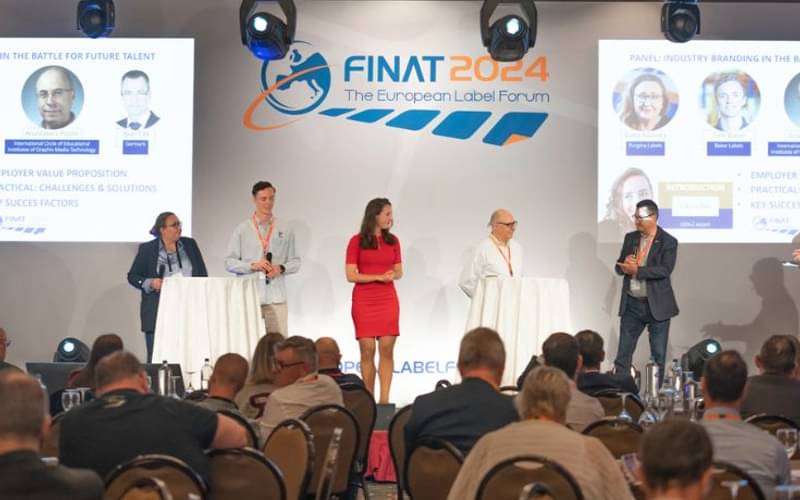Finat highlights business climate in the label printing industry
The 2024 FINAT (Féderation Internationale des fabricants et transformateurs d'Adhésifs et Thermocollants sur papiers et autres) European Label Forum (ELF) in Athens opened with a session on the label printing industry's business climate, offering data and forecasts as stakeholders face inflation, economic slowdown, and shifting consumer preferences. Label converters, brand owners, and suppliers are all affected, with the forum providing crucial insights for staying competitive.
19 Sep 2024 | By Anushka Chourasia
The current economic climate, dominated by inflation, and driven by energy costs, has caused price hikes in raw materials like paper, adhesives, and inks. In 2023, inflation hit double-digits in several European countries, leading manufacturers to raise prices by an average of 6.2%, according to Finat’s Radar report. Higher borrowing costs, with European Central Bank rates at their highest since 2001, have further complicated financing and investment for label converters.
The label sector, with an annual global turnover of around 39-billion euros, struggled in 2023 as label stock demand dropped 25.8% due to efforts to reduce excess inventory after 2022's supply chain disruptions. In 2024, demand rebounded by 29.4% in Q1 and 22.7% in Q2, but the market is still adjusting to pre-2020 levels, with uneven growth across regions and sectors.
The market for filmic roll label stocks, now 30% of total label consumption, continues to grow, driven by polypropylene (PP) and polyethene (PE) use in health, beauty, and food sectors where "no-label look" packaging is standard. Demand for direct thermal labels, especially in logistics and e-commerce, has also risen due to online shopping and supply chain automation. Meanwhile, traditional paper-based labels, like white uncoated and sheet labels, have seen their market share halve since 2005.
The session highlighted key growth drivers, focusing on sustainability and new EU regulations like the Circular Economy Action Plan and Extended Producer Responsibility (EPR) schemes. Demand for eco-friendly materials, such as recycled paper and compostable films, is projected to grow by 18% by 2026. Additionally, digital and hybrid printing technologies are expected to gain market share as converters invest in smart labelling solutions and automated workflows.
The ELF session ended on a note of cautious optimism, with attendees recognising that the label printing industry must adapt, innovate, and focus on sustainability to navigate changes. Finat will support industry stakeholders with updated market data and forecasts as they prepare for the next European Label Forum in May 2025 in Amsterdam.


